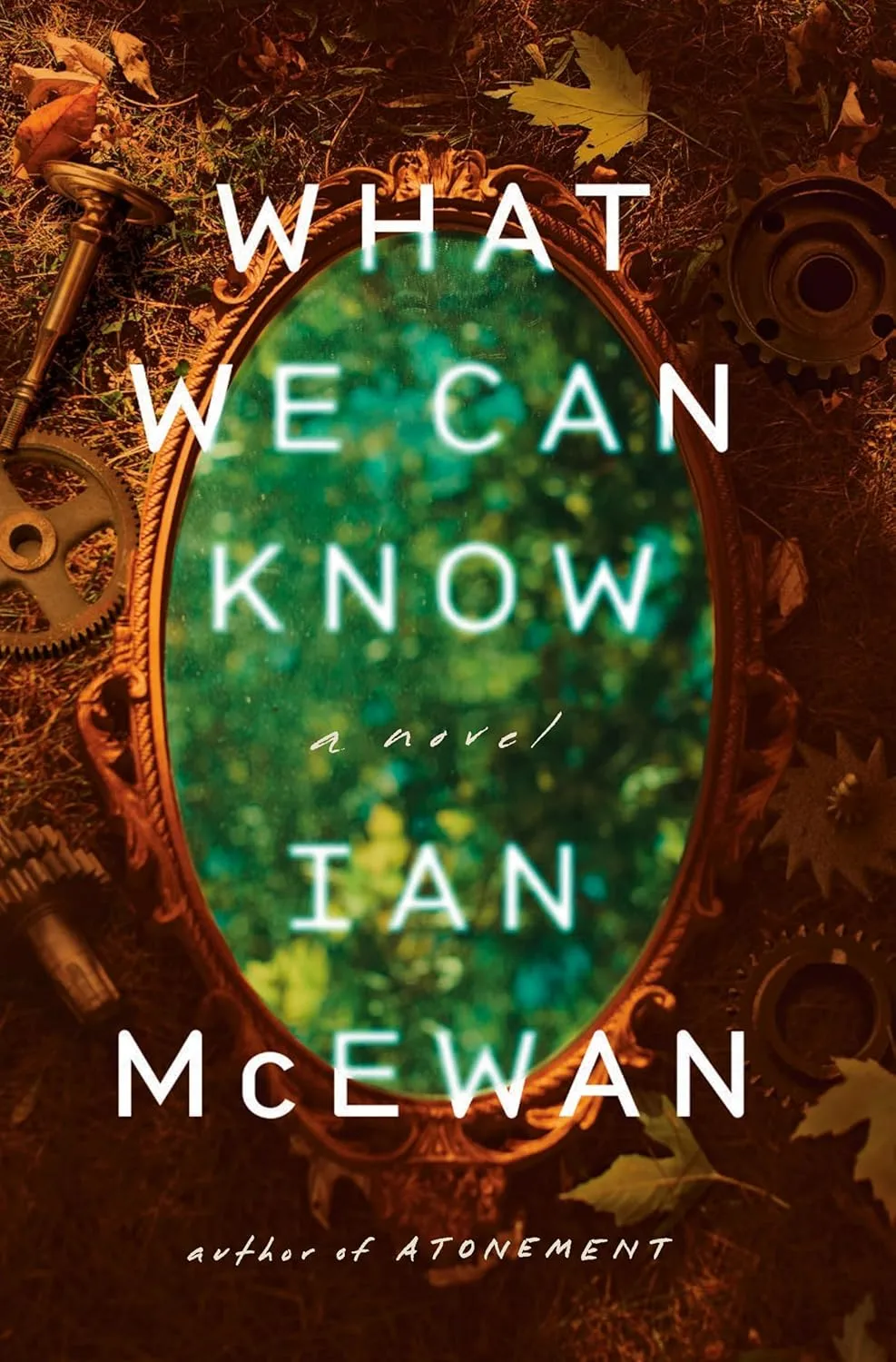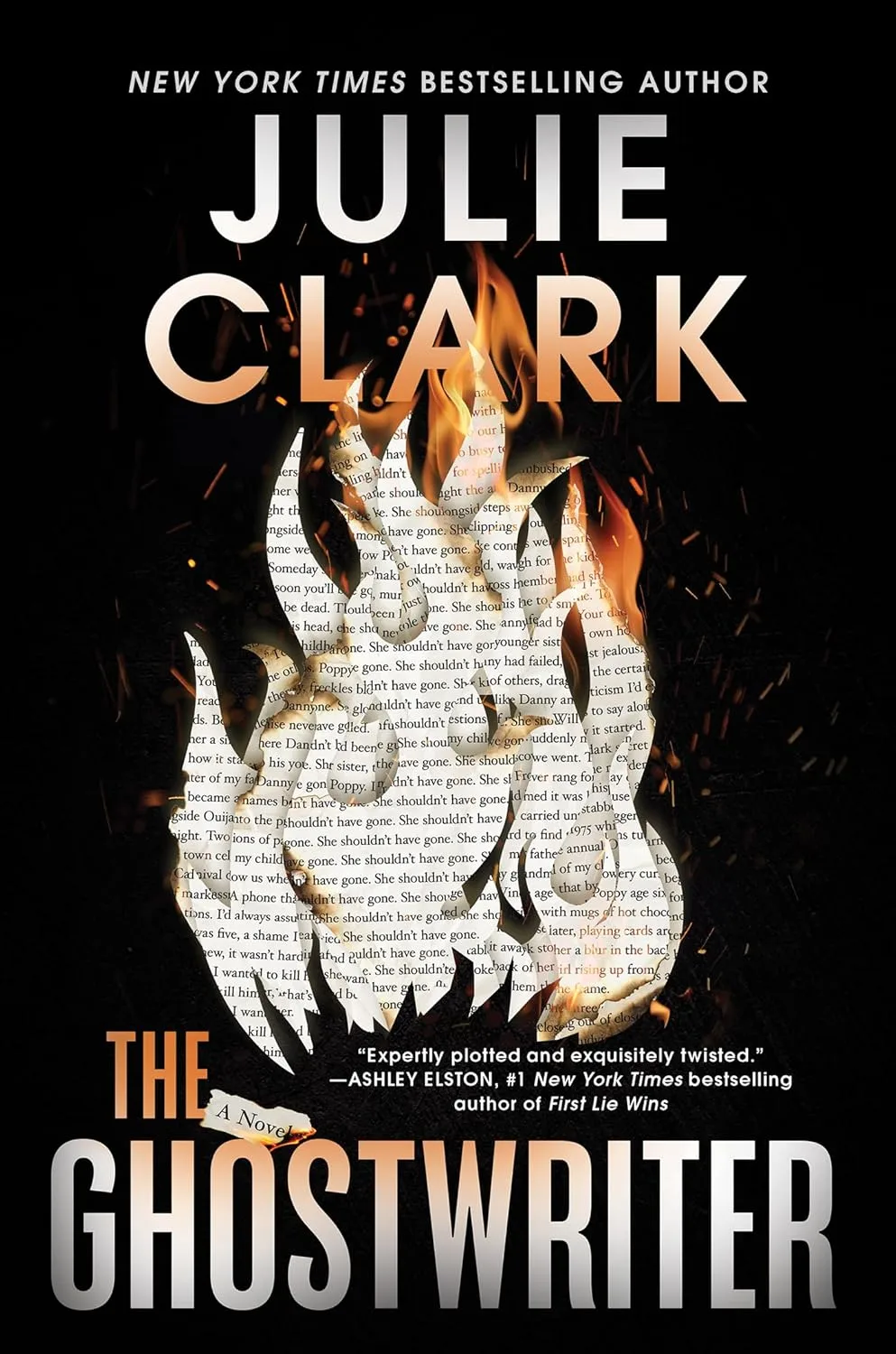Overview
What We Can Know is Booker Prize-winning author Ian McEwan’s genre-bending eighteenth novel that explores the limits of knowledge, memory, and truth across time. Set almost a century in the future, in 2119, in a UK partially submerged by rising seas, the story centers on Tom Metcalfe, an academic at the fictional University of the South Downs, who is investigating a lost poem, read aloud at a party in 2014.
In 2014, a great poem was read aloud at a party and never heard again. For generations, people have speculated about its content, its author, and the circumstances of its disappearance. Now, in 2119, Tom Metcalfe becomes obsessed with uncovering the truth. When he stumbles across a clue that may lead to the great lost poem, revelations of entangled love and a brutal crime emerge, destroying his assumptions about a story he thought he knew intimately.
McEwan has described the book as a work of science fiction “without the science.” In the book, people in 2119 call the first half of the 21st century “the Derangement,” because everyone knew about climate change but failed to act. The novel is a quest, a literary thriller, and a love story that explores what can ever be truly known about the past.
Key Takeaways
| Aspect | Details |
|---|---|
| Genre | Literary Fiction, Speculative Fiction, Climate Fiction, Literary Mystery, Academic Novel |
| Publication Date | September 24, 2025 |
| Publisher | Nan A. Talese/Doubleday (US), Jonathan Cape (UK) |
| Page Count | 304 pages |
| Setting | 2119 in a climate-changed UK partially underwater; flashbacks to 2014 |
| Protagonist | Tom Metcalfe, humanities professor at University of the South Downs |
| Central Mystery | A lost poem read at a party in 2014, never recorded or published |
| McEwan’s Approach | Science fiction without the science; focus on humanities, love, daily life |
| Climate Perspective | “The Derangement” – a judgment on our era’s failure to act |
| Status | New York Times Bestseller |
Book Structure
What We Can Know employs a dual timeline structure that gradually reveals connections between past and future:
2119: The Future Investigation
Tom Metcalfe’s obsessive search for the lost poem in a drastically changed world, where rising seas have submerged portions of Britain and climate catastrophe has reshaped society.
2014: The Past Events
Flashbacks to the party where the poem was read, introducing the people involved, their relationships, and the circumstances that led to the poem’s disappearance—and a brutal crime.
The Convergence
As Tom uncovers more clues, the two timelines converge, revealing shocking truths about love, betrayal, violence, and what we can really know about the past from a century’s distance.
Metafictional Elements
The novel plays with the nature of storytelling itself, questioning how stories are preserved, distorted, and reconstructed across time.
The Resolution
Tom’s discoveries force him to confront uncomfortable truths and question his assumptions about the story he thought he understood.
About the Author
Ian McEwan is one of the most celebrated and accomplished writers in contemporary literature. At 77, he shows no signs of slowing down, continuing to produce thought-provoking, genre-defying work.
Awards and Honors:
- Booker Prize winner for Amsterdam (1998)
- Somerset Maugham Award for First Love, Last Rites (1976)
- Whitbread Novel Award for The Child in Time (1987)
- WH Smith Literary Award for Atonement (2002)
- Multiple Booker Prize shortlistings throughout his career
- Germany’s Shakespeare Prize (1999)
Notable Works:
- Atonement (adapted into an Oscar-winning film)
- Saturday
- Enduring Love
- The Children Act
- Machines Like Me
- Lessons
McEwan is known for his elegant prose, psychological depth, moral complexity, and willingness to tackle difficult subjects. His work often explores themes of guilt, atonement, memory, and the unreliability of perception.
Why This Book Resonates
Genre Innovation: McEwan brings his literary mastery to speculative fiction, creating what he calls “science fiction without the science”—focusing on the humanities rather than technological speculation.
Climate Consciousness: While McEwan says it’s not a climate change novel, climate change looms over the story, making it feel urgently relevant to our current moment of environmental crisis.
“The Derangement” Concept: The future’s name for our era—recognizing our knowledge of climate catastrophe combined with our failure to act—serves as a devastating judgment on the present.
Literary Mystery Appeal: The quest for a lost poem combines McEwan’s literary sophistication with page-turning mystery elements, appealing to readers across genres.
Meta-Literary Exploration: The novel examines how literature is preserved, remembered, and lost—particularly relevant in our digital age questioning what will endure.
Academic Novel Tradition: Continues the tradition of campus novels while adding speculative elements, appealing to readers who love academic settings and intellectual pursuits.
McEwan’s Evolution: Demonstrates the author’s continued willingness to experiment and evolve rather than repeating past successes.
Ideal Audience
This book is perfect for:
- Ian McEwan fans eager for his latest work
- Literary fiction readers who appreciate elegant prose and psychological depth
- Climate fiction enthusiasts seeking thoughtful engagement with environmental futures
- Mystery lovers who enjoy intellectual puzzles and literary investigations
- Academic novel fans drawn to university settings and scholarly obsessions
- Readers who loved Atonement, Possession by A.S. Byatt, or The Luminaries by Eleanor Catton
- Book clubs seeking discussion-worthy themes about knowledge, memory, and truth
- Those interested in how we remember and preserve culture across time
- Speculative fiction readers open to literary approaches to futurism
- Anyone pondering what future generations will think of our climate inaction
Memorable Quote
“People in 2119 call the first half of the 21st century ‘the Derangement,’ because everyone knew about climate change but failed to act.”
This devastating concept encapsulates the novel’s judgment on our current era. Future generations will look back in bewilderment at our collective knowledge combined with our catastrophic failure to respond—a “derangement” indeed.
Central Themes
| Theme | Exploration in the Book |
|---|---|
| The Limits of Knowledge | What can we truly know about the past, especially from a century’s distance? How does time distort, obscure, and transform truth? |
| Memory and Preservation | How is culture preserved or lost across time? What survives and why? The fragility of human memory and cultural artifacts |
| Climate Catastrophe and Judgment | The Derangement—future generations’ bewilderment at our knowing inaction on climate change; living with the consequences of past failures |
| Literary Obsession | Tom’s consuming quest mirrors academic obsession and the human need to solve mysteries, even when truth remains elusive |
| Love and Betrayal | The 2014 timeline reveals entangled romantic relationships, jealousy, and passion that lead to devastating consequences |
| Crime and Guilt | A brutal crime emerges from the past, raising questions about justice, accountability, and whether we can judge historical events fairly |
| Science Fiction Without Science | McEwan focuses on the humanities, love, and daily life in the future rather than technological speculation |
| The Unreliability of Narrative | How stories are told, retold, and distorted; the gap between what happened and what is remembered or recorded |
| Academic Life in Dystopia | What role do the humanities play in a world transformed by climate catastrophe? Does poetry matter when seas are rising? |
| Connection Across Time | How events in 2014 resonate in 2119; the invisible threads connecting past and future |
The Climate-Changed World of 2119
Physical Transformation:
- UK partially submerged by rising seas
- Coastal cities and regions underwater
- Reshaped geography and displaced populations
- Infrastructure adapted to higher sea levels
Social and Cultural Shifts:
- “The Derangement” as historical judgment on the early 21st century
- Changed relationship with technology and knowledge preservation
- Altered academic and cultural priorities
- Living with the consequences of past inaction
McEwan’s Approach: Rather than detailed world-building, McEwan sketches this future lightly, keeping focus on human concerns—love, loss, obsession, and the search for meaning.
The Lost Poem Mystery
The Central Enigma: In 2014, at a party, someone read aloud a remarkable poem. No recording exists. No one remembers it precisely. Speculation about its content, author, and meaning has persisted for over a century.
Tom’s Investigation: Using fragmentary evidence, incomplete accounts, and historical research, Tom attempts to reconstruct not just the poem but the entire evening—who was there, what happened, and why the poem disappeared.
Revelations: His investigation uncovers more than he bargained for: entangled relationships, hidden motivations, and a brutal crime that changes everything he thought he knew.
Meta-Literary Significance: The lost poem serves as a metaphor for all lost knowledge, the fragility of cultural memory, and the impossibility of truly recovering the past.
FAQ
Q: Is this really science fiction if it’s “without the science”? A: McEwan notes that he is less interested in the future of science than that of the humanities, love and daily life. It’s speculative fiction focused on social and cultural futures rather than technological ones.
Q: Do I need to know about climate science to read this? A: No. The climate-changed setting provides atmosphere and context, but the novel focuses on the human story and literary mystery.
Q: Is it depressing given the dystopian setting? A: While the backdrop is grave, the novel focuses on Tom’s intellectual quest and the 2014 relationships, balancing the somber setting with engaging mystery and human drama.
Q: Is this McEwan’s best work? A: Critical opinions vary. Some consider it a masterpiece; others find it less affecting than Atonement or Saturday. It’s certainly ambitious and thought-provoking.
Q: How much of the book takes place in 2119 vs. 2014? A: The primary narrative follows Tom in 2119, with substantial flashbacks to 2014 as he uncovers the past.
Q: Does the poem actually exist? A: This would be a spoiler, but the question of what can be known—and what must remain uncertain—is central to the novel’s themes.
Q: Is it similar to Atonement? A: Both novels explore memory, knowledge, and how stories are constructed and reconstructed, but they’re distinct works with different structures and concerns.
Q: Will climate deniers be put off by this book? A: The climate-changed setting is presented matter-of-factly as backdrop rather than polemic, though “The Derangement” concept makes McEwan’s perspective clear.
Critical Reception
New York Times Bestseller Status: The novel achieved bestseller status, demonstrating continued strong interest in McEwan’s work.
Critical Praise:
- Elegant prose and sophisticated structure
- Thought-provoking exploration of epistemology
- Successful genre blending
- Described as “a gravely post-apocalyptic tale that blends mystery with the academic novel”
- Demonstrates McEwan’s continued evolution and experimentation
Critical Considerations:
- Some readers find the climate setting underutilized
- The mystery resolution may not satisfy all readers
- Pacing can feel slow for those expecting thriller elements
- The meta-literary aspects may feel too intellectual for some
- Emotional impact varies—some find it moving, others more cerebral
Reader Response: Mixed but generally positive, with particular appreciation from readers who enjoy McEwan’s characteristic style and those interested in thoughtful climate fiction.
Comparative Literature
Similar Works:
- Atonement by Ian McEwan (memory, perspective, literary construction)
- Possession by A.S. Byatt (literary mystery, dual timelines, academic investigation)
- The Ministry for the Future by Kim Stanley Robinson (climate fiction)
- The Luminaries by Eleanor Catton (complex structure, mystery)
- Cloud Atlas by David Mitchell (stories across time)
- The Name of the Rose by Umberto Eco (literary mystery, academic setting)
McEwan’s Climate Fiction: This follows Solar (2010), which satirized climate science and politics. What We Can Know takes a more sober approach, showing the aftermath rather than the build-up to catastrophe.
Discussion Questions for Book Clubs
- What does the title suggest about the novel’s epistemological concerns? What can we truly know about the past?
- How effective is “The Derangement” as a concept for our current era? Will future generations view us this way?
- Does the climate-changed setting enhance or distract from the literary mystery at the novel’s core?
- How does Tom’s obsession mirror academic pursuits more broadly? When does intellectual curiosity become unhealthy obsession?
- What does the lost poem represent? Why does it matter to people in 2119?
- How does McEwan explore the relationship between knowledge and certainty? Can we ever be certain about historical events?
- What role do the humanities play in a world transformed by climate catastrophe? Does poetry matter when seas are rising?
- How does the dual timeline structure affect your reading experience? Which timeline did you find more engaging?
- What does the novel suggest about cultural preservation in the digital age? What will survive of our era?
- How does this compare to McEwan’s other works? Does it feel like a departure or a continuation of his themes?
Final Thoughts
What We Can Know represents Ian McEwan at his most ambitious and experimental. By placing a literary mystery within a climate-changed future, he creates a multi-layered exploration of knowledge, memory, and the stories we tell about the past. The result is a novel that operates on multiple levels—as thriller, academic novel, climate fiction, and philosophical meditation on epistemology.
The novel’s greatest strength is its elegant prose and sophisticated structure. McEwan remains a master stylist, and his sentences carry both intellectual weight and emotional resonance. The dual timeline creates genuine mystery and suspense, pulling readers through Tom’s investigation while gradually revealing the truth about the 2014 party and its aftermath.
“The Derangement” concept is brilliant—simultaneously devastating and darkly apt. Future generations will indeed wonder how we knew so much about climate catastrophe yet did so little to prevent it. By setting his novel after the worst has happened, McEwan avoids the didacticism of many climate novels while still making his perspective clear.
Some readers may wish for more world-building or technological speculation in the 2119 timeline. McEwan’s decision to focus on the humanities rather than the science means we learn relatively little about how this future society functions beyond the climate-changed geography. This is deliberate—McEwan is interested in human concerns that transcend technological change—but it may disappoint readers expecting more traditional science fiction.
The literary mystery itself proves genuinely engaging, though its resolution will satisfy some readers more than others. McEwan is more interested in the quest than in providing neat answers, which aligns with the novel’s themes about the limits of knowledge but may frustrate those seeking closure.
Ultimately, What We Can Know succeeds as a meditation on what survives across time, what can be recovered from the past, and what must remain forever uncertain. In our current moment of climate crisis and information overload—paradoxically combined with concerns about what digital culture will preserve for future generations—McEwan’s novel feels urgently relevant.
For readers willing to engage with its intellectual ambitions and accept its measured pacing, What We Can Know offers a rich, thought-provoking experience. It may not reach the emotional heights of Atonement, but it demonstrates McEwan’s continued ability to surprise, innovate, and provoke reflection on the most pressing questions of our time.
Recommendation: Essential for McEwan fans and literary fiction readers interested in how established authors approach climate fiction. Best appreciated by those who value elegant prose, intellectual puzzles, and philosophical inquiry over action or emotional catharsis. A significant addition to McEwan’s distinguished body of work.
Author’s Intent and Interviews
At 77, the Booker Prize-winning British novelist Ian McEwan shows no signs of slowing down. In interviews about the book, McEwan has emphasized:
- His interest in the humanities, love, and daily life in the future rather than technological speculation
- The concept of “The Derangement” as a way future generations might view our era
- His intention to write science fiction that focuses on human concerns
- Questions about what cultural artifacts survive and how we know the past
Links
- Buy the Book on Amazon
- Read More Summaries
- Barnes & Noble
- Penguin Random House Publisher Page
- Jonathan Cape (UK Publisher)
- Goodreads Reviews
- NPR Interview with Ian McEwan







